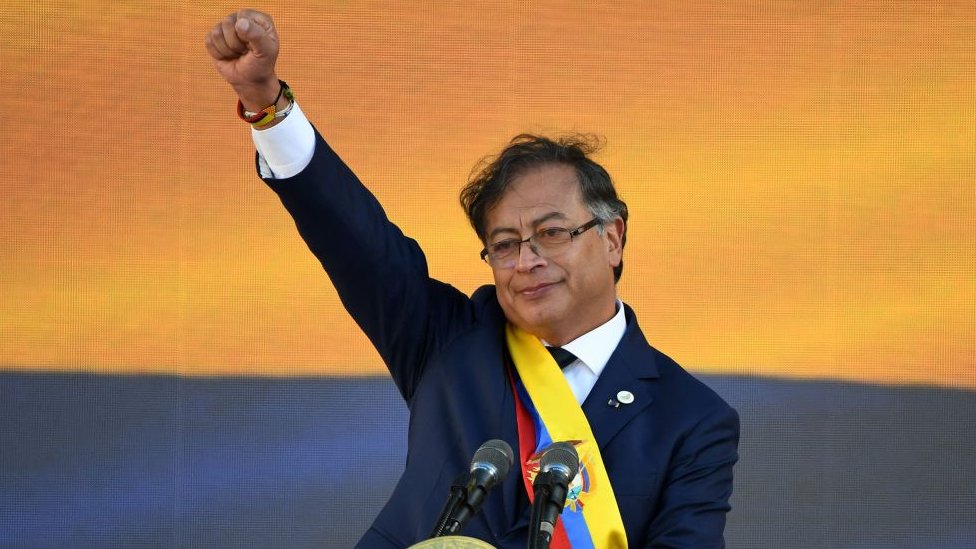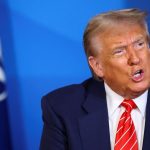Colombia has long been at the center of the global conversation on drug trafficking, cocaine production, and the international war on drugs. As one of the world’s largest producers of coca, the raw material for cocaine, the country has faced decades of scrutiny and pressure from the United States, which remains the top consumer market for the drug.
- A History of U.S.-Colombia Drug Relations
- The U.S. Allegations Against Colombia
- Petro’s Firm Rebuttal
- The Socioeconomic Realities of Coca Production
- Criticism and Support for Petro’s Approach
- Global Shifts in Drug Policy
- The Role of International Cooperation
- Diplomatic Implications
- What Comes Next for Colombia
- FAQs
- Why did the U.S. accuse Colombia of weak drug enforcement?
- What is President Petro’s position on drug policy?
- Has Colombia’s coca production increased under Petro?
- How does Petro’s approach affect U.S.-Colombia relations?
- What alternatives to forced eradication has Petro proposed?
- Conclusion
Recently, a new chapter in this ongoing saga emerged when Colombian President Gustavo Petro firmly rejected accusations from Washington that his administration was failing to curb drug production and trafficking. The allegations, which claimed Colombia had scaled back its anti-narcotics operations, sparked a heated diplomatic exchange that highlighted the differing philosophies of Bogotá and Washington regarding drug enforcement.
A History of U.S.-Colombia Drug Relations
To fully understand the significance of President Petro’s rejection, one must first look at the history of U.S.-Colombian cooperation in combating narcotics. For decades, the United States has invested billions of dollars in Colombia through initiatives like Plan Colombia, a military and development aid package launched in 2000. Its primary goal was to curb cocaine production and strengthen Colombia’s institutions against powerful cartels and insurgent groups.
While Plan Colombia is often credited with weakening major cartels and reducing overall violence, its effectiveness in cutting coca cultivation has been debated. Despite years of aerial fumigation campaigns, manual eradication efforts, and heavy military involvement, coca cultivation reached record highs in the mid-2010s. The United Nations Office on Drugs and Crime (UNODC) reported that Colombia cultivated more than 230,000 hectares of coca in 2022, a sharp increase from earlier years. These statistics fueled U.S. criticism that Colombia was not doing enough, though local leaders and experts have increasingly argued that traditional enforcement-driven strategies have failed to address the roots of the problem.
The U.S. Allegations Against Colombia
The recent allegations from the U.S. government accused Colombia of scaling back aerial fumigation and forced eradication of coca crops, suggesting that these reductions allowed production to flourish. Critics in Washington argue that without aggressive eradication, Colombia risks undermining decades of bilateral cooperation and contributing to the flow of drugs into the U.S. market.
The U.S. Drug Enforcement Administration (DEA) has consistently maintained that Colombia must “do more” to control production. American lawmakers have also raised concerns about Colombia’s commitment, pointing to a rise in cocaine seizures along U.S. borders. These allegations carry weight, as U.S. aid and diplomatic relations often hinge on Colombia’s cooperation in the drug war.
Petro’s Firm Rebuttal
President Gustavo Petro, who took office in 2022 as Colombia’s first leftist president, dismissed these allegations as outdated and misguided. In his public statements, Petro emphasized that the traditional strategies of forced eradication and militarization had not worked. He argued that coca cultivation is not merely a law enforcement issue but a deep-rooted socioeconomic problem tied to rural poverty, inequality, and lack of opportunity.
Petro has often said, “The war on drugs has failed.” His administration’s policy shifts focus from repression to rural development, crop substitution, and harm reduction. Rather than waging war on farmers who grow coca out of necessity, Petro advocates addressing the conditions that make coca the most profitable crop for impoverished rural communities. He believes this approach, combined with international cooperation, is the only sustainable path forward.
The Socioeconomic Realities of Coca Production
Coca cultivation is not driven by ideology but by survival. In Colombia’s rural regions, where infrastructure is weak and government presence has historically been minimal, coca often represents the only viable source of income. A kilogram of coca paste can earn a farmer several times more than legal crops like coffee, maize, or cassava.
Petro has argued that criminalizing farmers who grow coca is unjust, as they are the lowest link in the supply chain. Instead, his government has proposed programs that help farmers transition to legal crops by providing subsidies, technical support, and access to markets. However, these programs face challenges. Transitioning requires significant investment, time, and infrastructure development—things that Colombia cannot achieve without international support.
Criticism and Support for Petro’s Approach
Petro’s rejection of U.S. allegations has divided opinion. Supporters argue that his stance reflects a much-needed shift in drug policy. Former Colombian president Juan Manuel Santos, who won the Nobel Peace Prize in 2016, has also called for rethinking the drug war, describing prohibitionist policies as “a failure.” Human rights organizations echo this sentiment, pointing out that forced eradication has often led to violent clashes between security forces and rural communities, further destabilizing vulnerable regions.
On the other hand, critics warn that Petro’s policies may embolden cartels and criminal groups if not paired with strong law enforcement. They argue that development programs take years to yield results, while cartels can exploit the interim to expand operations. U.S. officials also worry that without strict eradication, Colombia’s coca production could surge beyond already record levels, undermining global anti-narcotics efforts.
Global Shifts in Drug Policy
Petro’s response must also be seen in the context of a global shift in drug policy. Across Latin America, leaders have increasingly criticized the U.S.-led war on drugs for fueling violence and failing to reduce supply. Countries like Mexico and Bolivia have experimented with alternative approaches, including decriminalization and state-regulated cultivation.
Even within the United States, there is growing debate about whether international enforcement strategies align with domestic reforms. Several U.S. states have legalized marijuana, and discussions about decriminalizing other substances are gaining traction. This apparent contradiction—expecting strict prohibition abroad while easing restrictions at home—has been a source of tension in U.S.-Latin American relations.
The Role of International Cooperation
Petro has made clear that Colombia cannot tackle the drug problem alone. He has called for shared responsibility, urging consumer countries like the U.S. and Europe to do more to curb demand. “As long as there is demand, there will be supply,” Petro has argued, pointing to the failure of strategies that focus solely on producers while ignoring consumers.
He has also advocated for international investment in rural development and climate-related initiatives, linking the fight against drugs to broader global issues. For instance, he has suggested that wealthy nations fund programs that pay Colombian farmers to preserve forests instead of cultivating coca, framing it as both a drug control and environmental protection measure.
Diplomatic Implications
Petro’s rejection of U.S. allegations risks straining relations between Bogotá and Washington. The United States remains Colombia’s largest trade partner and a critical source of aid and investment. Yet Petro’s approach suggests a willingness to challenge U.S. orthodoxy, potentially signaling a shift toward greater independence in foreign policy.
For the Biden administration, which has emphasized cooperation with Latin America, Petro’s defiance presents a dilemma. Cutting aid could weaken Colombia’s stability, but continuing to demand traditional eradication strategies risks alienating a key regional partner. The outcome of this debate could shape not only U.S.-Colombian relations but also the broader direction of hemispheric drug policy.
What Comes Next for Colombia
Looking ahead, the success of Petro’s strategy will depend on his ability to deliver tangible results in rural development and to maintain security against powerful criminal groups. His administration faces the daunting task of balancing reformist ideals with the immediate pressures of enforcement.
If his approach proves effective, Colombia could become a model for other nations seeking alternatives to the war on drugs. However, if coca cultivation continues to rise without measurable progress in alternative development, critics will likely use it as evidence that Petro’s policies are misguided.
FAQs
Why did the U.S. accuse Colombia of weak drug enforcement?
The U.S. government alleged that Colombia reduced eradication efforts, particularly aerial fumigation and forced eradication, allowing coca cultivation to flourish. American officials are concerned that this contributes to the rising flow of cocaine into the United States.
What is President Petro’s position on drug policy?
President Petro rejects militarized eradication strategies, calling them ineffective. Instead, he emphasizes rural development, crop substitution, and addressing socioeconomic inequalities that drive coca cultivation. He argues that the war on drugs has failed and that new approaches are necessary.
Has Colombia’s coca production increased under Petro?
According to UN data, coca cultivation in Colombia has been rising for several years, reaching record levels in 2022. Critics link this to Petro’s less aggressive eradication policies, while his administration argues that decades of forced eradication had already proven ineffective.
How does Petro’s approach affect U.S.-Colombia relations?
Petro’s rejection of U.S. allegations has introduced tension into bilateral relations. While the U.S. seeks continued strict enforcement, Petro pushes for reform and shared responsibility. This divergence could reshape the future of cooperation between the two nations.
What alternatives to forced eradication has Petro proposed?
Petro supports crop substitution programs, subsidies for legal farming, international investment in rural development, and initiatives linking drug policy with climate and environmental preservation. He emphasizes solutions that address the root causes of coca cultivation rather than punitive measures.
Conclusion
Colombia’s President Gustavo Petro’s rejection of U.S. allegations of weak drug enforcement is more than a political dispute—it is a direct challenge to decades of established policy in the hemisphere. His insistence on shifting away from militarized eradication toward development-oriented solutions reflects both the realities of rural Colombia and broader global debates on drug policy.
While his approach carries risks and faces skepticism, it also opens the door to new possibilities in tackling a problem that has long seemed intractable. Ultimately, the success or failure of Petro’s strategy will not only define his presidency but could influence the future of drug policy across Latin America and beyond.










